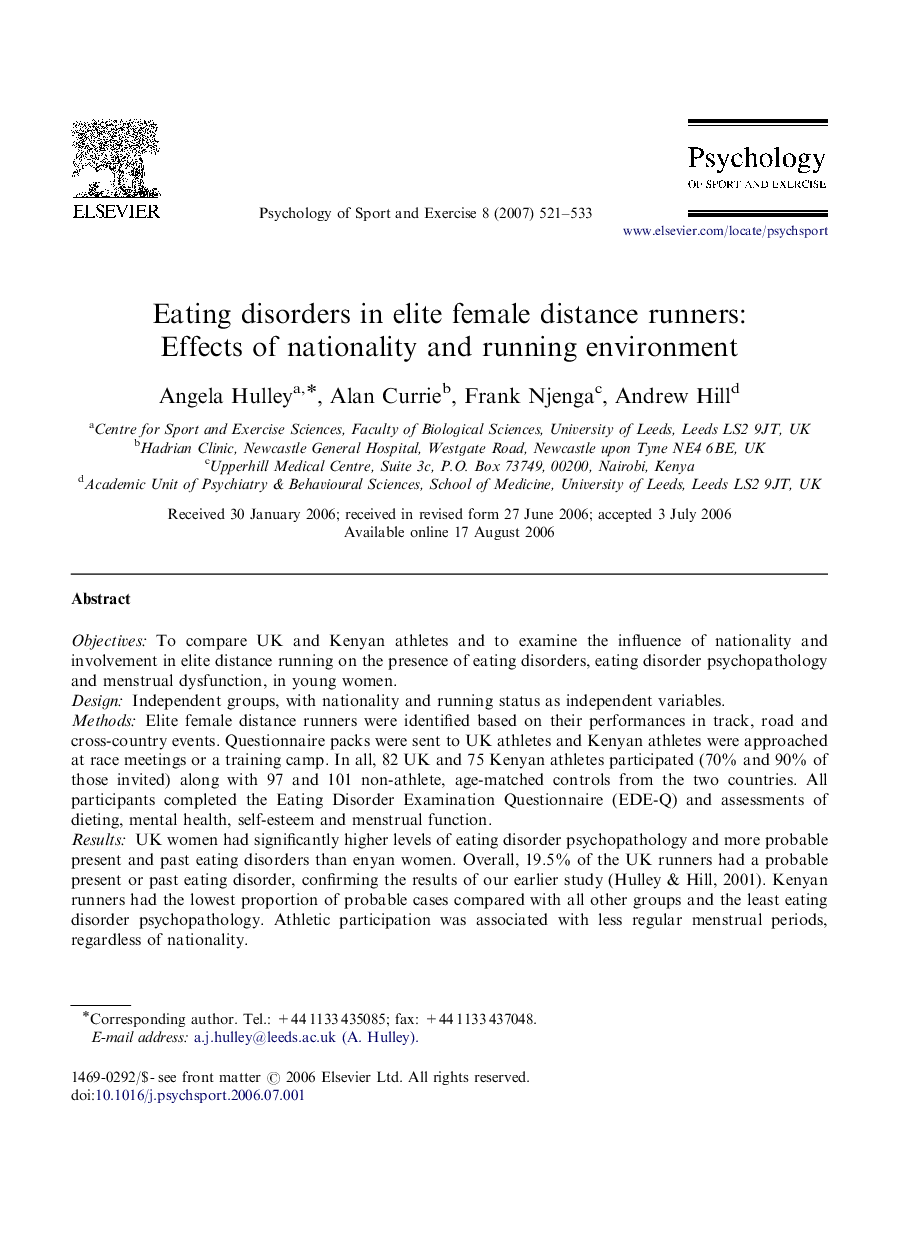| Article ID | Journal | Published Year | Pages | File Type |
|---|---|---|---|---|
| 894907 | Psychology of Sport and Exercise | 2007 | 13 Pages |
ObjectivesTo compare UK and Kenyan athletes and to examine the influence of nationality and involvement in elite distance running on the presence of eating disorders, eating disorder psychopathology and menstrual dysfunction, in young women.DesignIndependent groups, with nationality and running status as independent variables.MethodsElite female distance runners were identified based on their performances in track, road and cross-country events. Questionnaire packs were sent to UK athletes and Kenyan athletes were approached at race meetings or a training camp. In all, 82 UK and 75 Kenyan athletes participated (70% and 90% of those invited) along with 97 and 101 non-athlete, age-matched controls from the two countries. All participants completed the Eating Disorder Examination Questionnaire (EDE-Q) and assessments of dieting, mental health, self-esteem and menstrual function.ResultsUK women had significantly higher levels of eating disorder psychopathology and more probable present and past eating disorders than enyan women. Overall, 19.5% of the UK runners had a probable present or past eating disorder, confirming the results of our earlier study (Hulley & Hill, 2001). Kenyan runners had the lowest proportion of probable cases compared with all other groups and the least eating disorder psychopathology. Athletic participation was associated with less regular menstrual periods, regardless of nationality.ConclusionThese findings confirm that participation in distance running at an elite level does not in itself predispose to an eating disorder. Eating disorder risk is better represented as a combination of cultural values, elite sporting environment and person variables.
